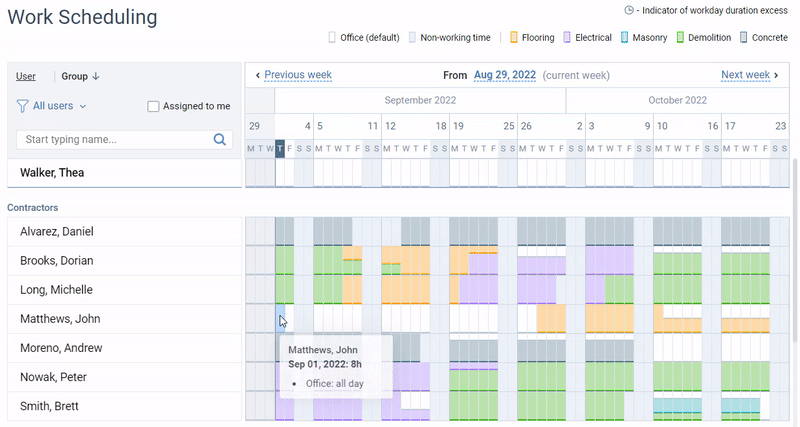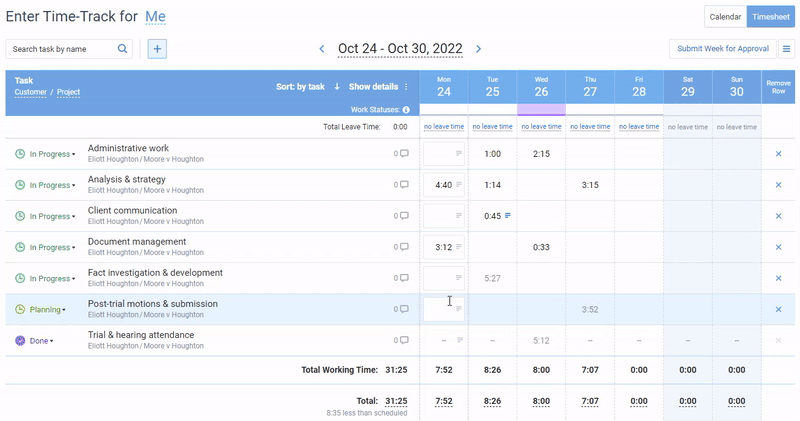Zero hours workers play a crucial role in today’s flexible labor market, allowing businesses to adapt to changes in demand as quickly as possible.
Managing these workers fairly and effectively isn’t just a nice gesture – it’s essential if you seek to foster a motivated and productive workforce, enhance your company’s reputation, and reduce staff turnover.
In this post, we’ll explore what zero hours contracts are, how to calculate zero hours pay, and how to manage it all more efficiently overall.
Let’s dive right in!
What’s a Zero Hours Contract?
A zero hours contract means having a job with a truly unpredictable schedule. Essentially, it’s an agreement between an employer and an employee where the employer isn’t obligated to provide any minimum working hours, and the employee isn’t obliged to accept any offered work.
It doesn’t get more flexible than that!
What’s the point?
Zero hours contracts can actually be pretty nifty, depending on your perspective:
- For employers, it’s about adaptability – being able to scale the workforce up or down based on demand without the fuss of constant hiring and firing.
- Meanwhile, for employees, especially those juggling multiple gigs or commitments, having the freedom to accept shifts that fit their schedule can be a genuine perk.
Sure, there’s some debate about worker stability and rights, but for those who appreciate the unpredictability and autonomy, zero hours contracts can be just the ticket.
What Does the Law Say?
When it comes to fair pay, workers under zero hours contracts are entitled to:
- The National Minimum Wage. The law ensures that for every hour an employee works – whether it’s during the wee hours or mid-afternoon tea time – they’re paid at least the minimum hourly rate set by age and role. It ensures that workers, regardless of the hours their boss doles out, are not exploited at the workplace and pocket a fair wage.
- Holiday pay. Under the UK’s Working Time Regulations 1998, even those on zero hours contracts have the right to holiday pay. This is because the law views holiday pay as an earned entitlement based on the hours you actually work, not the fixed hours written into a contract. So, individuals working on a zero hours basis are entitled to the same proportion of holiday pay as any other part-time or full-time employee. The trick is in understanding how it’s calculated (but more on that later).
- Statutory rest breaks. And just because an employee is on a zero hours contract doesn’t mean they’re left out of this legal right. It gives them an equal chance to catch a breather, keep their balance, and head back to work with renewed focus.
How to Calculate Pay for Employees with Zero Hours Contracts?
Regular pay
Zero hours workers are paid for the hours they actually work, which can be different every week. This means their pay will fluctuate based on how many hours you pick up:
- Let’s say, for example, you’re scheduled a zero hours worker for 20 hours one week at £15 an hour. You’ll pay them £300 for that week.
- But what if they only work 10 the next time around? Then you’re looking at £150.
Easy, right?
Holiday pay
Essentially, for every hour an employee works, they accrue a corresponding amount of holiday pay. The standard calculation is to accrue around 12.07% of their hours worked, which accounts for 5.6 weeks of paid holiday a year for a full-time worker (the minimum under UK law).
Now, let’s roll with an example for zero hours contracts:
- Say you have a worker who’s clocked 100 hours over the past few months. To figure out their holiday entitlement, you multiply those hours by 12.07%. That gives us 12.07 hours of holiday pay.
- If their hourly rate is £15, then their holiday pay would amount to 12.07 multiplied by £15, which is around £181.05. So, that’s extra cash in their pocket for future vacations or a well-deserved staycation.
Holiday premium pay (unsocial hours pay)
In the UK, when employees work on a public holiday, they’re not legally entitled to premium pay as compared to some US workers. However, companies may still offer double pay or throw in 1.5 or a regular rate as a thank-you for employees who agreed to give up their holiday time or Sundays.
Let’s say an employee normally earns £10 per hour. If you have a 1.5 policy for public holiday work, they would earn £15 per hour instead. So, if that employee logs 8 festive hours on New Year’s Day, they’ll pocket a neat £120 for the day.
In the end, being clear on the terms regarding holiday premium terms can save you from heaps of confusion and even spark a bit of appreciation for those overtime hours among employees.
Zero Hours Contract: Tips for Effective Management
1. Schedule employees in advance whenever possible
Pre-planning and long-term resource scheduling help you maintain optimal staffing levels while also allowing your team members to plan their personal lives better.
To succeed with this task, strive to understand your business’s peak times and needs. Use scheduling software to spot patterns in demand, and communicate openly with your team about their availability.
Then, regularly update the schedule, and if changes are needed, let your employees know as quickly as possible about them.
Since zero hours contracts imply a lot of unpredictability, creating a sense of stability for your staff members will improve team morale and really help your business thrive.

Create visual work schedules for employees, edit them in a few clicks, and let actiPLANS automatically inform your zero hours workers regarding the updates via email.
2. Keep track of employees’ work hours and time off
Accurate time tracking is a sure way to stay compliant with employment laws and compensate your zero hours employees for their hard work. The same applies to time off tracking – a precise record of employee absences and PTO accruals will help you manage those holiday entitlements without a hitch.
While keeping track of work hours can be a complex task, actiTIME provides a simple yet effective solution:
- With its manual entry timesheets, employees can easily log their hours with precision. The feature is straightforward and reliable – a digital equivalent of the old punch card system, yet much more flexible.
- For those who are always on the move, actiTIME offers a mobile app with a stopwatch feature (perfect for real-time tracking). This means employees can start and stop the timer with a tap and track hours even when they’re dashing between meetings or out in the field.
- The calendar view provides an easy-to-read visual representation of when employees begin and end their tasks. It helps managers monitor employees’ adherence to the agreed schedule and break regulations.
- Your team can also track time off and automate PTO accruals in line with your company’s unique policies. Plus, integration with actiPLANS elevates this functionality by offering even more leave management features, including comprehensive reports.

Use actiTIME to accurately track employees’ work hours and time off no matter what kind of contract they have.
Check out actiTIME in action for free during a 30-day trial – sign up here.
3. Treat all your employees equally and fairly
Some employers see zero hours contracts as a way to sidestep the obligations that come with employing full-time staff, like benefits and job security. This creates an unstable work environment where workers are left uncertain about their income week to week.
Another culprit here is the lack of clarity around rights – some workers aren’t fully aware of what they’re entitled to, and unscrupulous employers might just take advantage of this.
So how do you make sure you’re not one of those irresponsible employers?
- Clear communication is key. Set expectations from the get-go regarding workloads, pay, and available hours. It’s all about ensuring there’s no ambiguity, so both parties understand their responsibilities.
- Offer comparable benefits, such as access to training or professional development courses. This not only helps zero hours workers feel invested in but also contributes to their growth.
- Recognize contributions regularly. Celebrating achievements and providing feedback can make a world of difference in morale.
- Ensure there’s a fair process for voicing grievances. When workers know they can speak up without fear of retaliation, it builds trust and a sense of security.
Treating zero hours workers with respect and fairness isn’t just about complying with regulations – it’s a strategic move towards building a happier, more committed workforce. And when your team members thrive, so does your business.
Conclusion
Zero hours contracts offer incomparable flexibility. However, there’s a fine line between unpredictable and productive.
To counteract the risks inherent in zero hours work, it’s vital to ensure efficient team scheduling processes along with effective team communication.
For businesses looking to streamline their scheduling processes and overcome the unpredictability of zero hours contracts, actiPLANS might be the right solution.
It features visual employee schedules, automated PTO accruals and email notifications, and data-rich reports for precise pay calculations. This way, it helps you manage your workforce more efficiently and takes the guesswork out of resource scheduling.
Give actiPLANS a try and start to manage zero hours employees without a hitch.



